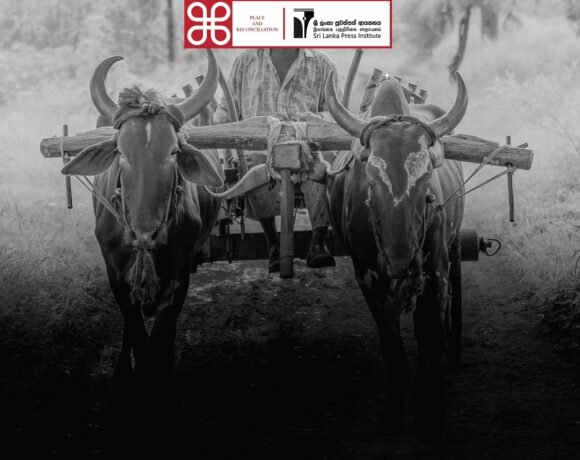Sunil Thennakoon
Working in the cashew industry is not as easy as eating cashews. Although it can be highly profitable, the cashew industry is currently facing a challenging situation. It isn’t easy to source the quantity of cashews needed for local consumption within the country. To address the severe cashew shortage, cashew farmers are being encouraged through subsidies, and the Cabinet has decided to permit the import of shelled cashew nuts. This is an exploration into the future of the cashew industry.
In Sinhala folklore, there is a saying that goes, “The cashews in the village are for the village bats.” It is a tradition for villagers to prepare a cashew-filled “Hathmaluwa” for the Sinhala and Hindu New Year, which is enjoyed during the auspicious time. During the New Year, traditional “Rabana” songs also mention cashews. When the young women of the village head to the garden with their sickles, they playfully sing Rabana songs about sitting and eating cashews. Back then, children in the village would enjoy cashew nuts during the Sinhala and Hindu New Year.
During the 1960s and 70s, with the end of the New Year celebrations, some mothers in the village would take the cashews gathered by their children, roast or chop them, and bring them to the weekly market, church fair, or temple feast. Today, society has made significant progress. A new generation of entrepreneurs has emerged to take the place of those village mothers. What was once a small-scale business has now become an industry.
The government of Sirimavo Bandaranaike, which came to power in 1970, established the Cashew Corporation, bringing together the scattered businesses under one roof. In the 1970s, a new renaissance emerged in the cashew industry. Entrepreneurs from places like Nedagamuwa in Gampaha, Eravur in the East, Kondechi in Puttalam, and Polonnaruwa were involved in the industry. Approximately 40,000 people are now engaged in the cashew industry.
Entrepreneurs enter the cashew industry and begin production by purchasing the harvest from cashew plantations and bringing it to their private warehouses. Before storing in a warehouse, the cashews must be thoroughly dried in the sun. Once properly dried, the moisture content in the cashews is minimal. The shelling of the cashews begins after that. At that time, women wore fully covered clothes and shelled the cashews to avoid the cashew milk from getting on their bodies.
In the present day, it is almost impossible to see female workers shelling cashews. With the advent of a new industrial era, the task of shelling cashews has been shifted away from women, and new machinery has been developed for the process. While a woman used to shell 1,000 to 1,500 cashews per day, her replacement or an automated machine can now process 5,000 to 6,000 cashews daily. Advanced machines have also been developed to remove the cashew kernels, a task previously done by women manually. The methods used to dry cashews have evolved from traditional techniques involving coconut shells and charcoal to sophisticated machinery. There are also specialized machines for roasting cashews and separating pieces of cashews. The educated younger generation is now involved in these processes.
Booming Times for Cashews in an Open Economy
Entrepreneurs say that the open economy, initiated in 1977, ushered in a good period for the industry. The open economy brought both benefits and drawbacks to the country. As a result of the open economy, our economy made significant progress. Alongside this, there was a boom in the tourism and hotel industries. Due to promotional campaigns carried out worldwide, Sri Lanka became a popular destination globally. Tourists began to arrive in droves. Tourist hotels, cabanas, restaurants, and social clubs spread across the country.
Not only that, but the emergence of the “wedding” culture across the country led to the establishment of “wedding halls.” Saying that “catering services” sprung up in every village like mushrooms is not an exaggeration. All these establishments primarily relied on cashews. Cashews became essential for preparing various “bites” for tourists. Moreover, Sri Lankan cashews took center stage in hotels, wedding halls, and restaurants. New restaurant staff emerged to prepare cashews in various ways. Both state-sponsored and private institutions trained restaurant workers and waitstaff.
Cashew exports started in 1979. The government provided the necessary basic facilities, and private entrepreneurs took up the initiative. These export activities continued until the end of the 1980s. Through this, approximately 2,000 metric tons were exported annually. This enabled businesses to contribute to the country’s foreign exchange earnings. The country’s economy became even stronger as a result of this.
The Entrepreneur’s Perspective
Thilak Balasuriya, an entrepreneur from Nedagamuwa in Gampaha stated that cashew export had to be halted due to an inability to compete with global production and the war in the North.
During the global spread of COVID-19, there was some disruption in the cashew business. However, there was no significant drop in sales. Despite the pandemic affecting the world, it did not impact our village significantly. State-sponsored events were suspended, hotel functions were stopped, and the number of guests at social gatherings was limited. Under these conditions, we continued with the industry. Although there was some decline in sales, it was not enough to jeopardize the business. The people in our village believe that the presence of certain beneficial properties in cashews prevented the disease from spreading severely.
By March 2024, we will be facing a severe cashew shortage. We have sought government permission to import shelled cashews, and the Cabinet has approved it. However, without tax relief, the entrepreneurs will face difficulties. To protect the industry, imports are essential at this time. For domestic consumption, approximately 25,000 metric tons are needed. To meet this demand and ensure that entrepreneurs remain in the industry, around 30,000 metric tons of cashews need to be imported.
In the current market, shelled cashews can be purchased at an average price of between 575 to 650 rupees per kilogram. To process one kilogram of “Curry” cashews, approximately 5 kilograms of shelled cashews are required. The price for processed cashews ranges from 5,500 to 6,500 rupees per kilogram. Cashew flour costs around 5,560 rupees, while cashew pieces are priced at 4,780 rupees. Roasted cashews cost approximately 6,000 rupees. Cashew flour and pieces are typically purchased by the general public to use for special occasions.
The Institution Remains Unaffected by the Economic Crisis
Even if the country goes bankrupt or the dollar weakens, the cashew industry has not been significantly impacted. Cashew industry chairman and attorney Udara Wijesinghe stated, “We are successfully maintaining the industry.”
Although there have been setbacks in the cashew industry in some years, the dedication of the organization’s employees has ensured profitability. The organization reported a profit of 14 million in 2022 and an operational profit of 4 million in 2023. In December alone, revenue reached 29 million. We only sell the cashews from our plantations and manage our expenses independently. As an organization, we are in a favorable position.
As a business, we are moving forward. We operate two factories, one in Neddagama, Gampaha, and the other in Puttalam. For this, we require approximately 10 metric tons of cashews. The cashew industry has around 10,000 acres of land. These are located in districts such as Puttalam, Punani, Vellakulam, Madakalapuwa, Trincomalee, Hambantota, and Ampara, which are close to the coastal areas of Sri Lanka.
We are currently in the process of registering farmers. Our project department supports them. Registration is also done through the divisional secretariat. We provide cashew seedlings and other necessary resources. Field officers from our organization offer the guidance and assistance they need. We have now transitioned from seed cultivation to integrated farming and are expecting significant yields.
Due to the years of conflict, the cashew plantations owned by the organization were destroyed. Our Kondachchi estate alone spans 2,200 acres. In addition, there are cashew plantations in Eluwankulama, Puttalam. It will take another seven to eight years to restore the plantations that were damaged by the war. A cashew tree must be removed from the field after 30 years. To ensure a good harvest, we have started a new integrated plantation.
Several new varieties of cashews have been introduced in Cambodia. However, we cannot import them into our country because our climatic conditions are not compatible with these new varieties. As an organization, we have identified three new varieties that we are introducing to local farmers. We expect a higher yield from these varieties.
We are preparing to import cashews to bring foreign currency into the country. We receive support from entrepreneurs and non-governmental organizations. We do not control the price of cashews in the country; the price is left to the market. Private individuals set their own prices.
The organization is strengthening its distribution network. Plans are underway to open new retail outlets in Kandy, Pinnawala, and Galle, areas with a high concentration of foreign visitors. The organization aims to provide high-quality raw materials to entrepreneurs who travel across the country in search of cashews. There is a competitive nature between local entrepreneurs and the organization.
Where is the Answer to My Question?
Subhadra Airangani from Nadagamuwa, an entrepreneur, explained an intriguing issue. She mentioned that those involved in the production process face various challenges. If we process 500 kilograms daily, we cannot maintain the same production volume the following month because we accumulate excess stock. The reason is that we cannot sell the amount we produce. This is one of the challenges we face in this industry.
At first glance, this may not seem like a problem, but due to the excess production from the previous month, we are forced to stop work in the following month. No one has paid attention to this issue, and no one has identified it. If we stop work for a month, it causes serious problems for us and our employees. We are moving the industry forward by managing the market.
The price of cashews in Sri Lanka has skyrocketed. Compared to the global market, these prices are extremely high. Cashews are not food for the poor. While cashews were once affordable for the middle class, the current economic crisis has reduced their purchasing power, making it difficult for them to enjoy cashews. Now, the lower class has to wait for a friend’s wedding to taste cashews, as they are limited to the upper class.








